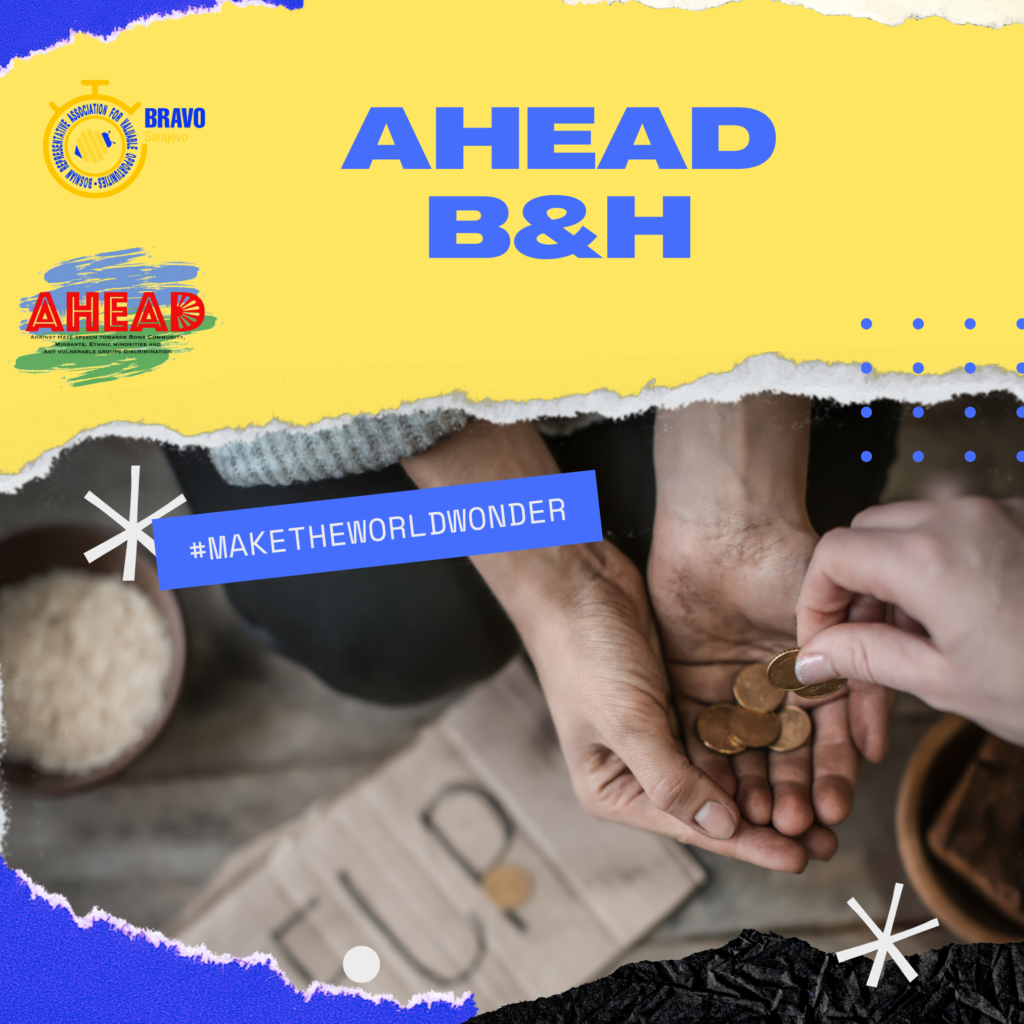
Roma women are facing obstacles on a daily basis. They are constantly being put at risk and they have an unequal position in society as their needs are not considered relevant by the authorities and are excluded from all spheres of public life. Specifically for this aim, the Women’s Roma Network “Success” of Bosnia and Herzegovina announced the campaign “Month Day of Roma Women’s Activism” named “Zero Tolerance” throughout the last month in order to increase awareness of the position of Roma women and the battle for their rights. This is one of society’s positive examples that motivates it to change and improve.
The aforementioned campaign started on the 8th of March and will last till the 8th of April, the World Day of Roma. Women from Roma networks attempt to express how they experience daily discrimination as both women and members of the Roma ethnic group, which is more complicated, as well as how they are subject to social exclusion, which is reflected in their limited access to health care, employment opportunities, and education, making them particularly vulnerable to various types of gender-based violence. It is precisely these uplifting stories that do not receive adequate exposure and attention. The campaign was carried out in the cities of Tuzla, Kakanj, Visoko, and Prnjavor, where they stated that violence, underage/arranged marriages, racial discrimination, Roma children’s invisibility in education, and social exclusion must not be tolerated or associated with Roma tradition, culture, and traditions because it is a violation of human rights.
The campaign requires:
- Zero tolerance for all forms of violence against Roma women
- Zero tolerance for underage/arranged marriages
- Zero tolerance for all forms of racial discrimination
- Zero tolerance for the invisibility of Roma children in education
- Zero tolerance for all forms of exclusion of Roma women
Women’s Roma Network “Success” is a great example in our society that is creating change and space for Roma women to be heard and share their experiences. Their stories must be heard and widely disseminated in order to raise awareness about the obstacles and discrimination they face. Therefore, it is our duty as a society to empower organizations and networks that are fighting for Roma’s rights and equal position in society!
More about AHEAD project:
AHEAD project aims to promote between youngsters non–discrimination and to combat racism, xenophobia and other forms of intolerance against Roma and other Ethnic minorities (mostly migrants). Partners jointly work on innovative good practice approaches, human rights-based narratives, training, official regular meetings, and European awareness raising campaigns. The project promotes inclusion, tolerance, mutual and multicultural understanding, and fight Roma, ethnic minorities, and migrants in Europe through an innovative approach that combines research, training (national and international) on antidiscrimination and on hate speech, round tables, seminars, the exchange of good practices, meetings between different representatives, stakeholders, CSOs, and youth associations, and a massive dissemination campaign.
The project aims to contribute to strengthening the capacity building of young victims (part of minorities) and the protection of youngsters belonging to minorities by supporting them in capacity building and structuring new mechanisms in public consultations in partner’s country (replicable all over Europe) on the issue of nondiscrimination and fighting every form of hate speech against ethnic minorities, Roma and migrants.
AHEAD’s aim is to tackle hate speech (also online) and to combat discriminations that target minorities in 5 areas of civil rights: education, labor, housing, health, goods and services, through specific training offered to 200 participants and through an new approach that combines quantitative research, public meetings with stakeholders, and awareness raising campaign. After providing expertise, building competences, advocating and raising awareness among youth people, partners will support the mobilization of young victims and will focus on Capacity building actions for youth, in order to involve Youngsters in decision making and into new structured automatic mechanisms to empower their active participation on hate speech and antidiscrimination.
